The value of the site is approximately $120,000.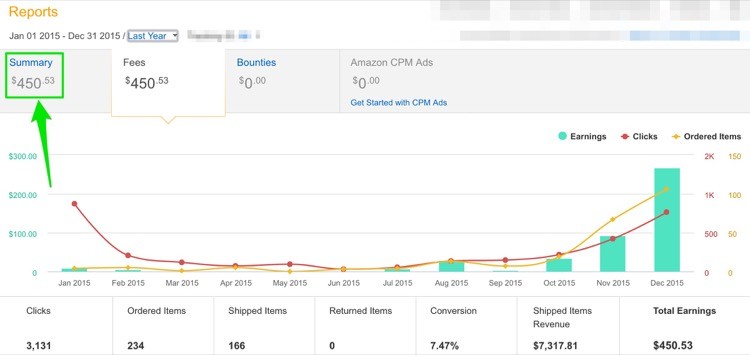
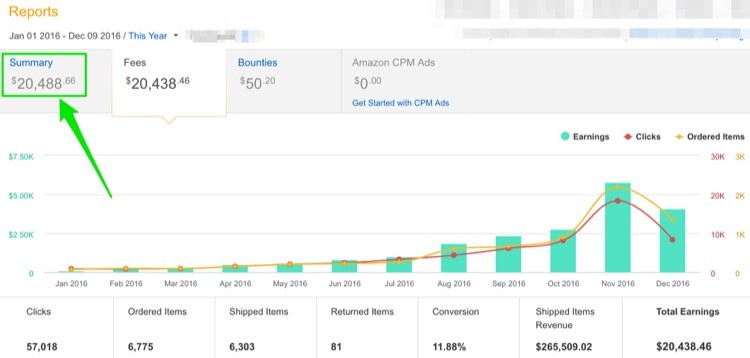
This post covers the simple, 2-step process that I implemented to increase the value for my niche site by $118,800.
The value of the site went from about $1,200 in 2015 to about $120,000 one year later, assuming a 25x monthly multiple valuation.
I did all of this part-time, outsourced most everything but the strategy, and ranked in Google through White Hat Content marketing, not Gray Hat Private Blog Networks.
I don’t do case study updates for my own sites very often. That’s for 2 reasons:
- The more I write about it, the more people may get interested in finding my site. It’s sort of unlikely that anything really bad will happen, but negative SEO is real and that makes it a risk that I can’t ignore. Keywords are not all that valuable in my opinion since you still have to execute and do the work.
- It’s more interesting to see what other people, like you, are doing. That’s why I publish success stories.
Ah, okay. 3 reasons. The third is: it’s easier NOT to write an update and simply do the work on the site instead.
If you have concerns about the valuation I listed above, I’d love to hear them in the comments. Valuations are interesting and dynamic so I’m sure some people disagree.
Executive Summary…What’s the Lowdown?
I took this site from:
- Making about $450 in 2015 to over $20,488 in 2016 through November.


- 24,285 visitors and 37,001 pageviews in 2015 to about 124,000 visitors and 193,233 pageviews in 2016 through November.


- Who knows what December will bring.

Rankings are up across the board, but the important metrics are revenue and traffic.
“Is this a fluke?”
No. I’m working on another project that’s more impressive – using the exact same 2-step process. I can’t wait to tell you more about this project! But for now I can tell you that income is trending like this:
- September 2016: $10,450

- October 2016: $14,670

- November 2016: $19,208

Content is the Key
 I published a bunch of content – a staggering amount – over 200 new posts. That cost some money since I outsourced 99.9% of it. The ballpark amount is $4,000 where $3,200 was the content and $800 was for editing and content management. Most all of the content gets some traffic and I didn’t build links to the 200+ new articles.
I published a bunch of content – a staggering amount – over 200 new posts. That cost some money since I outsourced 99.9% of it. The ballpark amount is $4,000 where $3,200 was the content and $800 was for editing and content management. Most all of the content gets some traffic and I didn’t build links to the 200+ new articles.
Adding all that content wasn’t easy, and I needed a lot of help. If you want to learn about how I published all that content and get access to the templates, watch the video on this post.
- What the team looks like. {org chart template}
- How I hire people from Upwork.
- The job posting {template} so you can use it.
- What to do if it doesn’t work out {template}.
- What my content manager does, i.e. the roles and responsibilities. {template}, for the rate of about $8 – $10 per hour.
- The content management tracking sheet {template}.
- Get the templates here. Just enter your email address and you’ll get access. **If you’re on the Niche Site Project email list already, go check your email because you should have a link to the templates already.
Some Backlinks Are Required
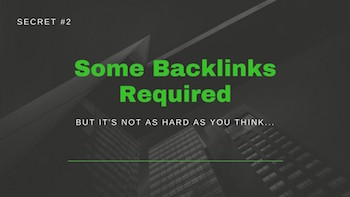 And, I went out and got White Hat links to the site through guest posting but only for a few key posts that cover competitive topics.
And, I went out and got White Hat links to the site through guest posting but only for a few key posts that cover competitive topics.
I did a lot of outreach and guest posting myself, especially at first. But I have a small team of outreach specialists that help me out now.
I know…you want to hear that you can go out and buy cheap backlinks from some random person in a Facebook group. You want to hear that you can just go to a specific guy or gal on Fiverr and get a shitload of social shares along with a “Link Pyramid” and rank #1 in 5 days. Maybe you can, but I don’t know how to do that…So if you’re looking for something that will rank your site “fast,” then you’re gonna be pissed off if you read this whole post.
The Origin of This Niche Site
The site has been around for awhile – I bought the domain in late 2014. That was after a bunch of my sites had been penalized, probably for using Private Blog Networks. (Spencer Haws and Jon Haver got mixed up in it in 2014, and Matt Allen in 2015.) But I really didn’t do too much with the site until the fall of 2015. I began adding more content to the site and tried to figure out why the posts weren’t ranking like they used to.
The BIG Secrets
If you want to know the secrets to niche sites and entrepreneurship, it’s simple. I’ll save you the time and you don’t have to read this whole post. It’s exactly the thing that most people don’t want to hear.
- Stamina
- Patience
- Adaptability
 If you’re reading this thinking, “Hey, what’s the tactic that will shoot my site to the top of the search results – FAST” or “I need to make money FAST because [fill-in-your-reason],” then you should get a job and save up.
If you’re reading this thinking, “Hey, what’s the tactic that will shoot my site to the top of the search results – FAST” or “I need to make money FAST because [fill-in-your-reason],” then you should get a job and save up.
Do valuable work and get stable. Sorry to be the one to tell you that, but trust me. You don’t necessarily need a great deal of cash to get started on an online business, especially an Amazon Associate Niche Site, but if you need money quickly to pay bills or pay off debt, then a job is the right path.
Can you cite examples of fast rankings and fast revenue? Sure, but those are outliers and exceptions so that’s not very useful. Niche sites take a while to get started, and while all the concepts are simple, there is a learning curve to deal with.
Okay, ready? Let’s get to it…
Publishing More Content
Get all the templates that I used to expand the site here.
In late 2015, I started developing, researching, and testing what is now called the Keyword Golden Ratio (KGR). I credit Lewis Ogden, Quinton Hamp, Shawna Newman, and Rob Atkinson for helping me come up with some of the concepts for the KGR. The KGR is a keystone concept for the Multi Profit Site course and it works extremely well. Here is a video of me explaining the Keyword Golden Ratio and how to use it.
Before the KGR, the site consisted of product reviews that targeted keywords that had search volumes of 2,000, up to about 10,000, searches per month. The KGR targets keywords that have a lower search volume and significantly less competition. It’s data driven, not intuition. Using the KGR in December of 2015, I published about 20 articles that averaged about 1,000 words each.
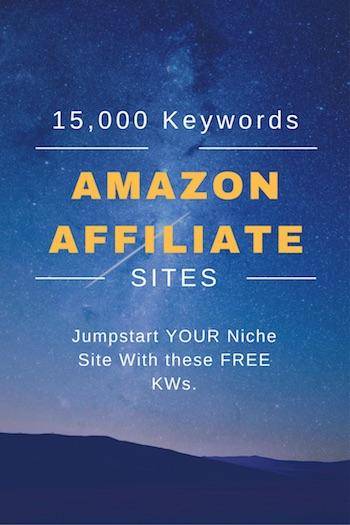 The articles targeted a specific keyword – deliberately – and after a few weeks almost all the articles were receiving 1 – 2 visitors per day. After a couple months, 1 – 2 of the articles were getting about 10-20 visitors per day. That’s a big win if you consider that some of those terms were reported by the Google Keyword Planner as getting 0 searches per month. That’s right. Zero. I assume that some or most of the visitors were actually searching for an obscure long tail keyword.
The articles targeted a specific keyword – deliberately – and after a few weeks almost all the articles were receiving 1 – 2 visitors per day. After a couple months, 1 – 2 of the articles were getting about 10-20 visitors per day. That’s a big win if you consider that some of those terms were reported by the Google Keyword Planner as getting 0 searches per month. That’s right. Zero. I assume that some or most of the visitors were actually searching for an obscure long tail keyword.
The takeaway is that keyword research is very important and you can’t believe the Google Keyword Planner or any keyword research tool at face value.
After I tested the initial set of keywords and published the 20 articles, I knew I was onto something that worked. It’s funny because the KGR has origins in the old school keyword research methods where you looked for how many pages existed on the web for a topic to gauge the competition. That concept still works even when you have fancy keyword research tools at your fingertips.
It took a while for me to start publishing more content, though. I was really busy on some other projects and additional education. Once I got organized, I started adding more content to the site in June of 2016. Wow! I can’t believe it took me that long to actually get my ass in gear.
(As an aside: I wish I would have focused sooner. It’s a bad trait of mine where I try to work on too many projects at one time. Many entrepreneurs do it and we fool ourselves into thinking that it works.)
It worked though. I hired writers, a few editors, content managers, and cycled through the poor performers so that I had a good team in place. The result was that I was able to publish a LOT of content very quickly and it only took about 4 hours per week. You got it – a 4-Hour Work Week. My team looks like this in case you want to create your own content team that’s pretty much hands off.
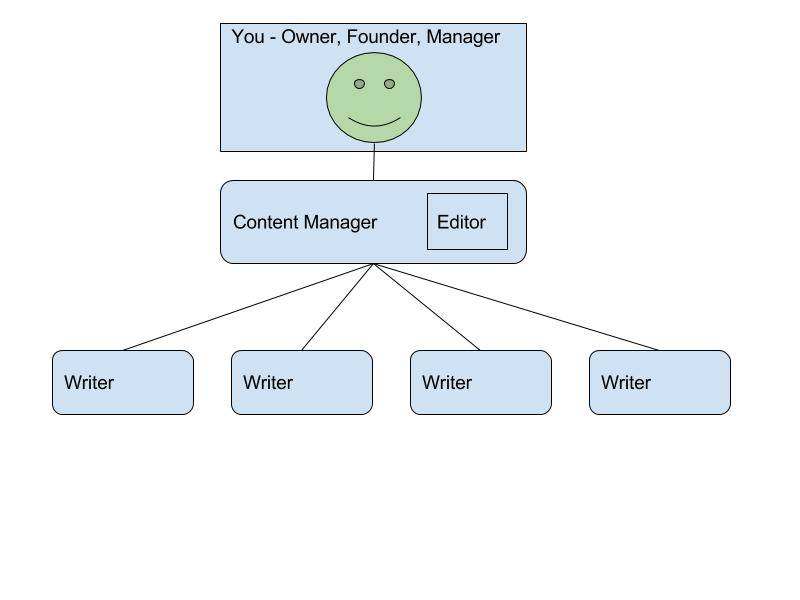
If you look at the traffic graph, you can see that it takes a little time for the traffic to start coming in for new content. But if you publish KGR compliant content, then you’ll get traffic.
The big takeaway is that sometimes you have to invest in the face of uncertainty. Any experienced entrepreneur will say, “Duh. No Shit, Doug. Entrepreneurship is about uncertainty…it’s not part of the game. It is the game.” I was so used to bootstrapping certain areas and waiting. It’s silly in retrospect since I know the systems work. I’ve seen them work again and again. I hesitated to spend the cash.
What Was The Content Like?
People are very interested in the details of the content. I’ll need to come back to that later when I have time to crunch the data. The content did follow most of the best practices for on page SEO listed here in Charles Floate’s tutorial.
- All of the 200 posts have a length of about 600 to 1,000 words.
- The writers were new freelancers on Upwork.
- I paid about $10 to $15 for each article.
- The jobs were a flat rate price, usually based on the word count.
- Some writers wrote just one article, others wrote several.
- I hired editors to make sure the content was good.
- I pay editors about $8 to $10.
- A single new piece of content costs about $20 to $25 total – that’s ignoring my admin time.
If you’re thinking, “Hey Doug, that sounds expensive. My budget won’t cover those costs. I’d like to hire some writers on Fiverr. Do you think that will work?”
Maybe but probably not. I like to pay people well when they do a great job and add value.
That’s how I want to be treated when I work for someone.
I ran a guest posting service and people want to pay a fraction of the value of my work. It was stressful and a bit offensive to devalue my work and treat it like a commodity. The point is that you’re going to get bad content if you pay really low rates. The writer is going to rush through the work as fast as possible.
So if you think you can pay bottom dollar for content and then go make top dollar on that same crappy content, go for it. Let me know if it works.
Obtaining More Links Through Guest Posting
 Get all the templates I use for guest posting here.
Get all the templates I use for guest posting here.
Guest posting is hard. At least, it was super hard when I first started trying to guest post. I saw the case studies, I saw the templates, and I knew it was going to be harder than anyone made it sound. I got so many rejections that it was so discouraging. I felt like Forrest Gump and everyone was telling me, “Seat’s Taken.”
Actually, they would respond more like this, “Do you really read my blog?” Or, “I write all my own content and want to keep it that way.” I felt like they were saying, “Screw you, Doug. You certainly can’t guest post here!”
And the most popular response was no response at all.
The BIGGEST Mistake In Your Guest Posting Campaign
I read all the blogs (Brian Dean and Neil Patel in particular) on guest posting and listened to people talk about it. I knew it could work. But I kept getting rejected. It turns out there was a super simple mistake that I didn’t realize I was making. It was all around pitching and emailing bloggers that don’t blog anymore.
So if you use the normal advanced search strings that everyone uses, then you’re not going to find many great blogs to guest post on. Instead, you’ll find one of two things:
- A blog that gets pitched all the time. You found them with a generic search string, and that means dozens of other people found them too.
- A blog that’s inactive. So you send them an email and the blogger hasn’t published anything since 2014. What are the odds they’ll even read your email? You’re better off buying some Powerball tickets and hoping for the best.
Once I figured that out, things got better. (Here a case study example at Ninja Outreach.)
After more rejections than I got in my high school dating career, things got better. I persevered, kept trying, and adjusted. I changed up the pitch in my emails and tested different kinds of blogs. You have to remember that an “exceptional” guest post campaign has 90 rejections and 10 guest posts as a result. I just wasn’t used to being rejected so much, so quickly, in a way that feels so personal. But it wasn’t personal.
I figured out a system that works well for me and the simplified version is this:
- Comment on a blog post published in the last 90 days
- Email the blogger and ask for a guest post.
- Write the guest post.
Using those 3 steps, a few dozen guest posts were published on blogs. You want to comment on the blog to develop a relationship with the blogger. People are more likely to say yes to people they like. You care about when the article was published because the blog must be active in order for a guest post to be accepted.
A ninja tactic for emailing the blogger is to sign up for the email list. Then, you gain more trust since you’re a subscriber to their list. It proves that you like them and the blog. You can simply reply to one of their emails and it’s almost guaranteed to be opened.
The impact of the guest posts takes longer than a Private Blog Network link. That’s because a PBN link will normally be on the homepage of a site, where the Page Authority is very high. Basically, more link juice gets passed to your site sooner. A guest post takes a while to work, but the upside is that it’s a safer link and you have a far smaller chance of being penalized.
Why Don’t You Use Private Blog Network Backlinks?
Look, I know PBNs work well and I’ve documented it in success stories published on Niche Site Project and in my course Five Figure Niche site. 3 things come into play for me:
- I don’t have the stomach to deal with the risk of a private blog network. You only have to wake up, check your analytics, and see a 90% drop in traffic one time to feel the pain that will change your link building strategy forever.
- I have time to build a site with White Hat links to ensure longevity. Using PBNs would be faster, definitely faster than White Hat guest posting. But what’s the goal here…
- My goal for this site is long term cash flow on a monthly basis, not flipping a site.
Eventually, the guest posts on strong domains started to pay off in the form of higher rankings. That led to more traffic and, of course, more Amazon sales and profits.
What’s Next?
I’m continuing with more guest posting. The site obviously has plenty of content with well over 200 posts and pages so there is lots of room for improving the backlink profile. That can lead to a boost in rankings across the board and that will definitely pull in more traffic leading to more revenue.
The content that’s doing well but not great needs to be improved. I’m outsourcing the content and the team does a pretty good job overall, however, there’s plenty of room for improvement. The content can be edited to help the reader even more – many times that means lengthening the content, making it more detailed.
“What about creating some new sites?” you may be thinking.
Or, “You need a portfolio of niche sites, Doug. Better get started, buddy!”
A portfolio is a terrible idea (for me right now). And yep, I know there are plenty of examples of people that crush it with a portfolio of sites. Most of the time people make the majority of their income from 1 or 2 sites – Pareto’s Distribution is in play (i.e. the 80/20 Rule) – and the other 8 or 10 sites are barely making any money. It’s a matter of understanding correlation and causality.
What Do YOU Think?
Leave me a comment below:
- Tell me if you think I’m making the right moves with my sites.
- Why or why not?
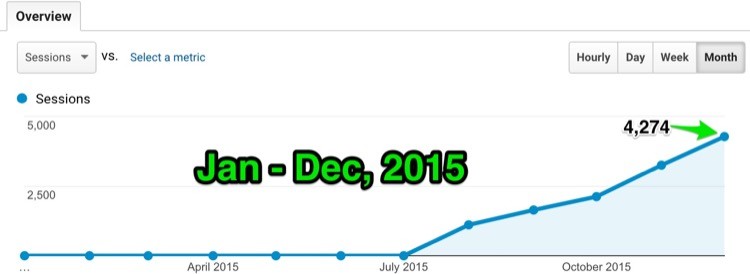

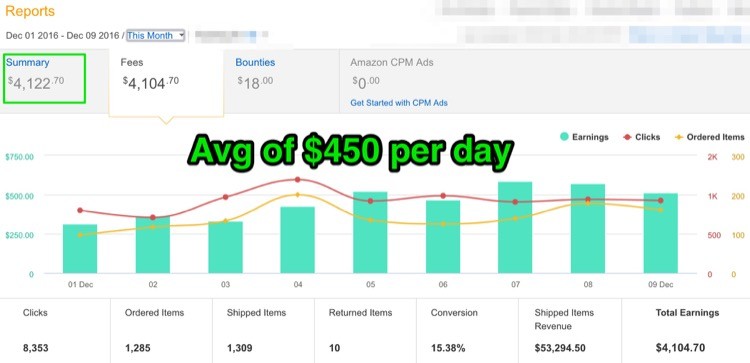
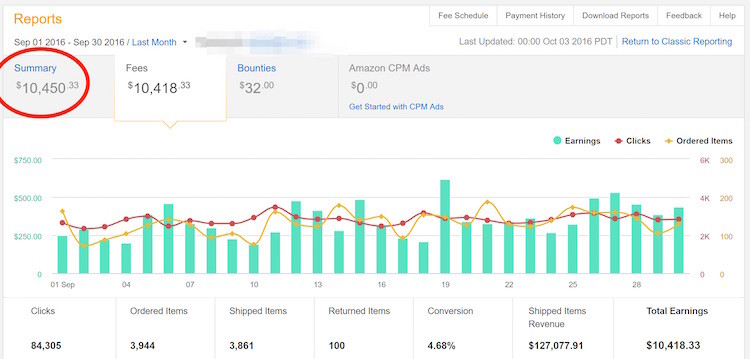
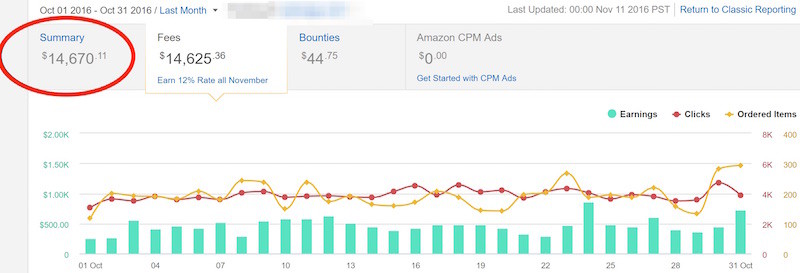
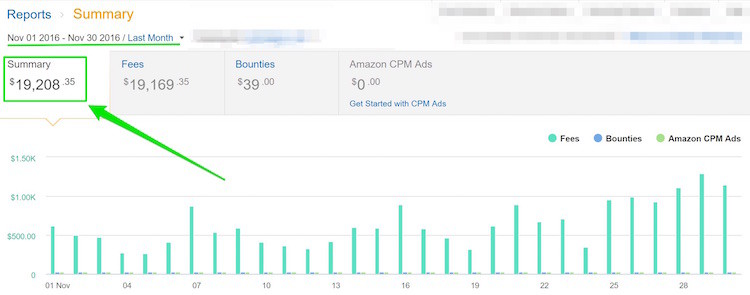



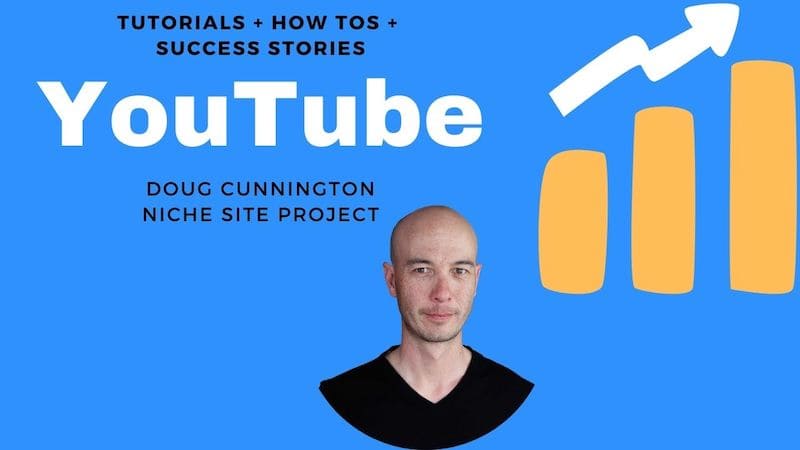
Comments on this entry are closed.
Really useful information, when you came across the blog that asked for a fee for guest post, did you just ignore it?
Thanks, Ken! If it looked like a legit blog, tell them I didn’t have a budget and asked for an exception, which never worked. Otherwise, I ignored them.
Hi Doug, I run guest post campaign extensively as well. At least, it’s one type of link building strategy that yield me substantial results. I would say if the blog looks legit and the links are over $100, then it’s worth paying. Most of the time, most of your competitors will skip pass that which makes the link much more valuable in Google’s eyes. Plus, most of the times, you get to choose the anchor text you desire for these sponsored posts and you will get a deep link directly to a product page instead of ordinary guest post where the links point to the homepage. Of course, you can’t rely solely on sponsored posts as I think it’s risky. But a healthy mix would be great 😀
Shaun, Good point about the high barrier to entry. It’s less risk than a straight up PBN, but for me if I’m going through the effort I want a real link.
That’s just a stone’s throw from a Public Blog Network…and normally, those guys and gals have several sites that they’ll sell you links on. Not always but often.
Either way, a mix of links is always good to have.
Great post Doug 🙂
I have a quick question regarding guest posting & PBNs.
I’ve recently published a guest post for my Amazon website on most authoritative website in my niche (TF 66, CF 56, DA 77).
The post got 3.1k shares week after publishing.
My question is: do you think it’s worth to get some PBN links as TIER 2 to that post? (let’s say 10 links @ $300 pbn package)
Thanks 🙂
Hey Vladimir, thanks for reading.
That’s interesting and I’ve thought about that for years…I wouldn’t do it.
Would it work? Yeah, probably.
BUT that’s bad business – not ethical for what I want my business to be. If you do that, you’ll never be able to blog with them again- that’s assuming they’ll find the links. That may or may not happen.
So the bottom line is that it’s bad karma. I’d be pissed if some built spammy links to my site. If it was a guest post I’d know where they came from.
Thanks for the reply Doug, I agree that’s bad business.
I gave PBNs as an example here. Let’s say those 10 links were actually another 10 quality guest posts to eliminate ethic factor in this question
Is there more value on pointing those 10 guest posts to primary website or strengthen the guest post on super authority website?
Would situation be different if tier 2 guest posts are linking to super authority guest post inside the content instead of author bio (in content links would be easier to get if linked on super authority website).
Yeah, that’s what I do: Guest posts to guest posts…over and over again. The blogger will notice and they like it.
Is there more value on pointing those 10 guest posts to primary website or strengthen the guest post on super authority website?
I link to both of them…my site and guest posts.
Awesome post, Doug. So on average with this 3-step method, a (rough) average return on (guest posting) outreach efforts is 10℅? And this is your primary method for outreach?
Hey Nicholas, thanks!
I’m not sure I understand “average return” – do you mean conversion rates?
If so, 10% is SUPER for a cold outreach campaign…that would be more like 3-5%.
But if you network with the bloggers, then 10% could be expected assume you’re doing the outreach the right way and all that.
“After more rejections than I got in my high school dating career”
you made my day :D.
BTW it’s very useful post for me Doug.
Haha! Wondered if anyone would read that line. 🙂 thanks Trieuly!
KGR looks very interesting, I’ve heard/read you use the term many times but have never taken the time to figure out exactly what it is. Obviously not a good move on my part. I’m now going to check KGR on my existing KW’s and then see if I can find some KGR nuggets. Thanks for the info, and nice work on scaling your sites.
Hey Matthew, thanks for checking it out. The KGR is great and really works…it takes time to find really good keywords and to get the hang of it.
Good luck and let me know how it goes for you.
One question, when you run the allintitle: can/should we use quotes around the keyword, or no quotes?
I noticed if I use quotes the returned page results drop dramatically, is that cheating the KGR system?
Matthew, I don’t use the quotes since it provides a realistic number of pages targeting the keyword phrase. That’s a great question and I should add that into the video.
It’s not about just finding the metric – Yes, the quotes are cheating – It’s also about making sure you’re sticking to the goal of actually finding keywords that have low levels of competition.
Just wanted to give an update, I just posted an article that fit the KGR standards on my site. I fetched it with google webmaster and less than 1 hour later it’s ranking 30. Mind blown!!!
Another inspiring post Doug. I personally agree about one niche site instead of portfolio. Was reading a lot lately and one large niche reviewer is more appropriate move. By the way, how many sites do you run now? Thanks
Roman (and Doug):
I am really on the fence in the debate about a portfolio or just one blog. My thought is to build out several sites but one at a time and only go on to the next once the first blog is firmly established.
I have no desire to try and build 4 or 5 blogs all at the same time. I barely have enough time in the day for building one 😉
Hey Roman, Thanks! Glad you like the post.
I have a few sites…but normally only focus on one at a time.
Hi Doug,
Highly informative post. Can it be boiled down to following two things ?
(1) Write detailed article around keywords having Golden Keyword Ratio.
(2) Build link to these articles through Guest Blogging.
Further, is this something that can be replicated in other than amazon niche websites?
Regards,
Shekhar
Hey Shekhar, thanks for reading it! Yep, you nailed it in the 2 steps. It’s not even “new” in any way, but the specifics make it work. It’s all in the details.
And, yep, it can be done for other sites. I haven’t done it personally, but yep…the same ideas apply.
What a thorough post that really digs into the key point for success in this business – putting in the time/work to make it happen. Stoked for your success, Doug! And looking forward to hearing more about site #2 in future posts.
Keep crushin’ it!
Hey Shawna, Thank you! Really appreciate the support. Thanks for telling me about KWs last year. 🙂
Good post. Do you use personas on your niche sites. For example if you have a female oriented niche are you posting on sites and guest posting as a female persona?
Hey Brian, thanks for the comment. Great question…
Yep, I like personas. And sure you can do that for female oriented niches…but honestly, a female persona converts better across the board. It doesn’t matter about the niche, female personas convert better.
Great article. Thanks for sharing your experience! I’m kind of new to the whole amazon associates concept, so I’m wondering, do you pay attention to DA when you evaluate how realistic to rank for some keywords? For example, my site has DA 45 and it ranks for 300000+ searches keywords on page 1. However, all those keywords are informational. Some affiliate related keywords I rank in the first 3 results have golden ratio of 71.8. However, these articles tend to be 3000+ and higher quality. So, do you think I should continue writing larger articles for high search volume keywords, or should I start writing smaller articles that target 0-1 golden ratio keywords?
Sergey, Thanks for the compliment!
To answer your question directly, yes, pay attention to DA or the Trust Flow.
But remember the KGR is for Search Volumes under 250, or the relationship falls apart.
So, do you think I should continue writing larger articles for high search volume keywords, or should I start writing smaller articles that target 0-1 golden ratio keywords?
I don’t know. What’s your goal? Are you making money with your current approach?
If you rank on page 1 for all those hundreds of thousands of terms, I should be asking you some questions! 🙂 But really you have to look at your specific goals for you sites…Only you can answer that.
Thanks, Doug!
I’m not making a lot, the only money maker is an affiliate program of one of my SEO clients that started making $2K+ per month in the past few months. But I’m not sure how long will it last. I’ve been working on this site for a year as a case study and it grew quite a bit. SEMRush shows monthly traffic value of $102K per month. The problem is that a lot of this traffic is for very broad keywords, which is a good problem to have, I guess. My original goal was to concentrate on growth in 2016 and start monetizing in 2017, since monetization slows link building. Well, it is almost 2017, so I’m switching gears to monetization and this amazon affiliate strategy seems like a good place to start. I guess I’ll test out your approach as well. If lower authority sites can get good results, I’m sure I will too.
Oh, by the way, you’ve mentioned that you don’t reveal your sites due to negative SEO and you are doing the right thing. However, you shouldn’t worry too much. My authority site has been under negative SEO atack (link spam) since October and it is still growing. Since latest Google update these bad links don’t count too much. I actually find it useful, since these spam links hide my high-quality links for those smart enough to analyze my link profile.
I’m glad I’ve found your site!
If you have traffic, then you’ll be able to figure it out. 🙂
And, I agree about Penguin 4.0…It seems to be that way for negative SEO. It’s a great thing if that’s the case.
Glad you found it too! See you around the blog.
Thanks for the great post, Doug! It`s awesome to see that this strategy works out for you so well.
I actually started with kinda the same 2 step strategy back in September on one of my affiliate sites. Ok my budget was not that huge and I just started with the second step (link building) a few weeks ago, but I have seen great progress in rankings, visitors and sales! It really motivates me to read your posting and it proves that I`m on the right track.
Defiantly I`m gonna compare the details of both strategies and most likely I`m gonna get inspired by some of yours. I think that mainly I have to scale my output of content by investing more money, cause I just did around 70 posting.
I`m just wondering if it will work on the german market as well as in your case, because the market is smaller. But let`s see!
Thanks again! Thomas
Thomas, Cool! Thanks for checking out the post.
So, I spent $4k on content but over several months. I started smaller too and scaled up as I had the capacity to.
Good luck! Let me know how it works out.
KGR sounds interesting. Is Jaaxy the tool of choice now considering it shows number of sites using the kw? Or do you just do manual checks? Also, given that Google KWP doesn’t show searches anymore, does it effect which tools you use?
Hey Dom,
I’ve been using Keyword Keg recently, great choice for newbies. I know a couple buddies really like Keyword Revealer.
And yeah, the KWP volumes are useless now…so I guess I need to reshoot that video. 🙂
Ah sounds good, so are you still able to calculate the KGR without the kw volumes?
You need the KW volumes…so any tool that gives them works.
Hi Doug, thanks for the useful article.
I just started to do some research for a certain page/topic that I want to bring forward.
For calculating the KGR I checked relevant keywords from Google Search Console for that page and wrote down all ‘allintitle:’ numbers.
When I tried to find actual monthly sesarch volume in the Google keywordplanner I only get estimates like ‘100 – 1k’ or ‘1k – 10k’.
How did you get more detailed numbers like in your video (@ 2:40).
Thanks in advance for your explanation.
T.
Wow! Cool post. You make a nice post. It will help us a lot. I want to say thank you very much 🙂
Thank you so much 🙂 I am slowly wrapping my head around this concept and your articles are very helpful
Hi Doug,
How many guest post do you have for that site alone? Is guest post effective over pbn’s?
Hey Jo, thanks for the comment. There have been dozens of guest posts.
PBNs are more effective in my experience, rank faster, BUT I don’t use them due to the inherent risk. It’s not my thing. PBNs work great if and only if they are actually good domains. So cheap fiverr gigs won’t work otherwise everyone would be using them.
Really digging your content Doug. I’m in the travel blogging space which is definitely not a way to get rich quick 🙂 Am adding in some Amazon affilaite product review pages slowly so the site can start generating a bit more income with the established authority (DA 31).
The KGR is definitely an eye opener. Will be having some fun with this one!
Job, really appreciate it! It’s kind of you to say.
That’s the trick- if you add smart affiliate based content in the mix, you’ll crush the “simple” niche sites. It won’t even be a competition, once you get over the hump.
Hey Doug
Awesome post!
What are your thoughts and experience on the amount of Amazon links on each page? Do you have any range as far as too many links on a page?
For site wide, do you add Amazon links to all pages? My hypothesis was that maybe having content pages (I target little to no traffic pages that didn’t take off) with no Amazon affiliate links would add more legitimacy and trust with Google and that it’s not “just an affiliate site.” What are your thoughts on that?
Thanks,
Charles
Hey Charles, Thanks for reading & the compliment!
I don’t have a hard and fast rule but around 1 link for each 100 to 300 words seems to be acceptable. That’s another reason why longer pages are good.
About sitewide links: Most posts/pages do have links… Yeah, you have a good point. However, look at the converse – Outdoor Gear Lab, The Wire Cutter, or The Sweet Home, etc… Go analyze those and you know they do very well.
Thanks for the quick response.
I checked those out. I am probably too paranoid. What is odd about The Wire Cutter and The Sweet Home is that it looks like they are cloaking/changing the Amazon link. I was using a cheap link globalizer (like EasyAzon), it displayed a different URL than the normal Amazon one, it worked for me but when I sold the site the new persons account was banned since having a different link is against their TOS, from what I understand.
I haven’t used a globalizer since but I am planning to add in EasyAzon (since they have a non cloaking option). Do you use any globalizer like EasyAzon, if so whats your experience and what would you recommend?
Hey Doug,
Nice post. Nice to see someone else taking guest posting seriously. It’s my personal link building method of choice – I have it fully automated and outsourced.
Do you have a way to automate the allintitle searches for the KGR? Or are you manually doing this? I would love to integrate this into a Google Sheet, so that it auto calculates for me. Cheers mate!
Hey Nick, Thanks man! Really appreciate it.
Automating for guest posting is no easy feat – so GREAT job.
I don’t have the allintitle automated in sheets, but that’s a pretty easy thing to do. Students of mine have integrated that…the only trick is that there is still a “captcha” that triggers with multiple allintitle searches.
The great part about the KGR is that most people don’t and won’t take the time to find them because it’s pretty manual. But that’s also the bad part – it’s manual and takes a while to do.
Hi Doug,
Great post! I have been building links via blog commenting and guest posts only. I have done guest posting in over 3 dozen blogs since September, and was seeing a steady increase in my traffic. However, the traffic has dipped in December. I don’t know why… Do I need to build more links? Really frustrating… I mean how much time does it take for the white hat SEO to influence traffic nicely?
So this actually makes me gravitate at the option of PBNs (although I haven’t used them so far)… In dilemma!
Me too!!! After a big increase, my site also dipped! I also don’t know why.
This great guide and great aspiration for amazon niche lover , i have mentioned you Guide in my blog post in my bonus area , here is the link if u dont mind
http://www.emarketinghacks.com/affiliates-marketing-guidescase-studies-income-reports-courses-and-ebooks/
Hi Doug,
Thank for the informative and inspiring guide!
How did you search upwork for a content manager who would also be a “quality control” editor, and for such a low price?
If I understand correctly, you paid around $16 per 1000 words for the writing, and $4 for editing?
(If you’ve ordered about 200 new posts, let’s say they were each 1000 words on average, where “$3,200 was the content and $800 was for editing and content management.”
btw you mentioned “editors” – did you work with several content managers simultaneosuly?
Hey Daniel, thanks for the comment.
How did you search upwork for a content manager who would also be a “quality control” editor, and for such a low price?
I hired a writer and then promoted them. If you look for an editor or content manager by role, then it maybe more expensive.
If I understand correctly, you paid around $16 per 1000 words for the writing, and $4 for editing?
(If you’ve ordered about 200 new posts, let’s say they were each 1000 words on average, where “$3,200 was the content and $800 was for editing and content management.”
Yes, roughly. Sometimes it was more or less depending on the article. The content was bought by the word, fixed price, and the editing/content mgmt was hourly.
btw you mentioned “editors” – did you work with several content managers simultaneosuly?
Yes, and I still do. I can get a lot more done with people working in parallel, plus it guards against attrition.
This is really impressive! I’m sure you killed it that last half of December. I am thinking of doing a large content push targeting low competition keywords.
Was there absolutely no traffic (LMS) requirement?
Could you share an average of what those 200 articles LMS is?
Im a little scared to put a huge time and money investment into a bunch of 10 LMS keywords. I am guessing there are a million of these, and you mentioned even targeting a keyword with 0 LMS!
Any insight is helpful for 2017.
Simple yet few people do this, publish quality post and do outreach, though outreach needs you to be genuine in terms of building a relationship and not just an easy way to leave a link to your website.
#bingereading
Excellent article, Doug! Would you ever recommend outsourcing the guest posting to a service? I’m not talking about a $5 Fiverr package, but I can get 30 Guest Posts in a month for $650. This is obviously still cheap. How do I assess the risk/return on this type of service?
Brian, thanks!
If it’s a good service, go for it.
So, 30 GPs in a month for that price is not a real guest post. I charged about $650 for 2-3 guest posts when I had a service.
I can confidently say that those links are garbage!
If it’s cheap like that, then it’s probably not going to be effective and may actually be a liability.
Hey Doug,
Great article as always. I have just started implementing KGR and have a list of KW’s, but I am getting a little confused. Say I have found these keywords (not my niche) but they all meet the KGR ratio:
[product] macys
[product] sears
[product] for sale
[product] in cold weather
best small [product]
best [product] on the market
1. Would you write a 600-1,000 word article for them all?
2. Would you only bother writting an article if you could monetize it with something from Amazon.
Aside from that, keep posting great content – my niche site is currently doing between $600 and $800 a month and using the KGR I plan on pumping out a load of content and going for the moon 🙂
I had this site built by one of your “competitors” last year. This was way before I heard of you. I was told that the niche for my site was a very good niche to choose and since I am an athlete it was also something that I had a lot of interest and experience. I have had very little traffic to the site and no sales.
After coming across your information on the internet I have done a lot of KGR research (I have actually gone through over 700 keywords, some given to me by the developer of the site and some that I actually found myself). Out of all of these keywords I was able to find only “2” keywords that fit the KGR criteria. Obviously I was very disappointed in not finding more. So, now I am at a cross roads. I have some questions that I hope you can help me answer.
1. Is the niche that I have too competitive and not actually a “NIche”?
2. Should I forget about the site and niche and find a new niche?
3. If you think the site can be monetized (and is a niche site) then what approach should I take since the KGR method appears to be something that may not work due to lack of KGR keywords to write articles?
I am willing to do the work and invest the time on the site but do not want to waste time, resources and energy on a site that will never be monetized.
I realize I am asking a lot from you but since I have found you I have read and listen to much of your advice so I trust your judgement.
I certainly hope that you are able to assist me with this issue.
Thanks, Jerry
Hi Doug as always a great article. You mention the 80/20 rule with regard to which sites do well and those that do not. Any tips on choosing the good ones
All the best
Excellent post, Doug. I exclusively follow your KGR method for creating posts. Using this I could rank 12 keywords in top 30 with 7 of them in the top 10 and 3 of them in top 3. I did this without any backlinking. Without your method, this wouldn’t have been possible for a person like me who is brand new to the blogging world. Thank you for sharing this technique with us.
I’m yet to do Guest Posting pitch. Since my site is less than 6 months old, I’m currently focusing on building the content database. What I love about your methods are, they are simple to follow, to the point and easy to implement.
What is the benefit of having all that content in terms of increasing affiliate sales. Does it make your overall site rank better, so your affiliate posts do better? Do each of your 200+ posts have affiliate links in them? I am a little frustrated with my niche sites right now, but have been focusing on link building. Wondering if a bunch of new content will really make a difference. Thanks!
Mel, more content that can rank will bring more traffic to your site. So yes, you’d sell more.
A blend of link building and content seems the most effective in my experience — but you have some issue that needs to be fixed. Like on page SEO for example…and if it’s not addressed no amount of links will help.
Hi Doug, I found KGR is really effective by reading your blog. I am a happy reader. Keep sharing the secrets with us.
Thanks! I removed your URL to keep your site private.
Hey Doug.
one of the best piece of content that motivated me to more focus on my goal. recently i applied your technique KGR with my own recipe on a blog and it blew everything. regular posts on a blog for 34 days gives me 345 keywords on 1st 2nd and 3rd pages .. 2 sales and DR 24 UR 12 and DA PA 12 and 11 respictively.
in my upcoming course KGR is the main topic that will be discussed with main credit toward you and your website.
thanks and best wishes
regards
ismailblogger
Nice work! KGR course – tell me more about that.
I have a free masterclass on the topic already. 🙂
Really useful information ♥ thanks
Hey Doug, I know this article is old, but how many of the 200 posts were informational/commercial?
I don’t remember exactly but most were commercial. Product Reviews.
Excellent post. I love reading articles like this
Crazy Dough
All of the 200 posts have a length of about 600 to 1,000 words.
Really,
increase the value for my niche site by $118,800…
Oh.
I just start testing KGR. watched all of your videos its super easy to find the keyword which fit in KGR.
is it ok to work with KGR on diverse niche e.g laptop, games, health, outdoor on single site.
or should i have to create a multiple sites on each niche and start using KGR technique for every niche site.
What you suggest..
I’d suggest have a site per niche…but I think you should start with just 1 site.
wow useful information
Hello, an interesting and very informative article you have built here.
I have my Amazon affiliate website since 2017. However, some reviews, comments, and articles about the danger of being banned from the Amazon program, even for violations you did not commit, made me quit working on it. I could not invest time and money, an then all of sudden, see the work of years to disappear.
Your blog posts gave me second thoughts to start upgrading my website.
Any reviews on Amazon affiliate? suggestions about alternatives in electronic and musical instruments department?
Thank you.
Thanks for checking it out.
Sure, I hear what you’re saying. Just go to the big vendors out there and see about an affiliate program – B&H Photo or Sweetwater Music, for example.
But, Dimitrios, basically any side hustle or business model is not immune from this:
I could not invest time and money, an then all of sudden, see the work of years to disappear.
Name a business model and I’m sure we can identify several potential risks. Amazon Associates isn’t for everyone and I don’t suggest that. But don’t think that you can escape risk by using another affiliate program.
Hi Doug,
Thanks for the great content. I am 1.5 months into a new site so am very much in the Content Building stage still. Im not able to buy any content yet but was interested that in your template you ask them to provide sources so you can cite them. Can you give an example of how you cite them in your blog posts? It feels as though I am just admitting I have no authority as I am citing lots of competitor’s knowledge?
Thanks,
Rob
Hi Doug,
I have signed up numerous times but never receive an e-mail from you with the templates?
Any chance you can forward them to me directly?
Thanks
Rob, Not sure what the issue was, but I added you manually. 🙂 Enjoy! All the links are in the first email you receive.
Thanks a lot for informative information ♥
thanks, Doug I am just gonna follow your kgr technique soon
thanx for useful information
Hi Doug,
Thank you for the great post. I will see how the KGR method works for me.
I usually get people asking me to link to their websites, some may provide guest posts while others don’t. Is it advisable to link out to sites with good content,
a) without charging?
b) Requesting for a backlink in exchange (not necessarily from the same website)?
c) How much should I charge for a link with and without a guest post? That is when a client supplies content and when they want a link from one of my articles?
Regards
Amos
Great questions, Amos. Basically, it’s 100% up to you. You created an asset (your site) so you can test and see what works for you.
I don’t want PBNs but how about buying links from websites .
It’s not ideal, but paying for the links due to an admin fee could be okay.